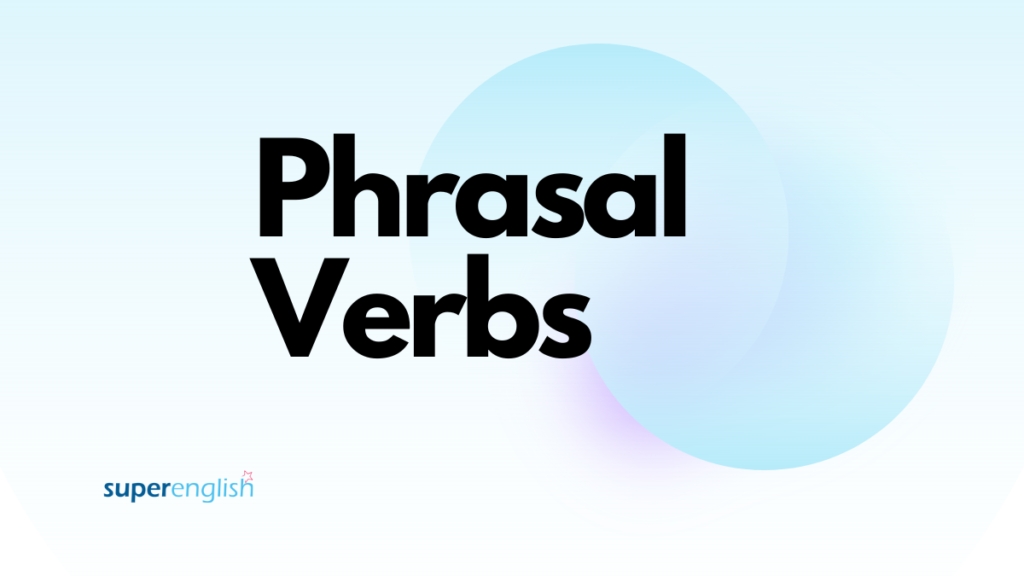Mastering English involves more than just memorizing grammar rules and vocabulary. It’s about delving into the nuances of the language and understanding how native speakers use it in real-life situations. One fascinating aspect of English is the extensive use of phrasal verbs, which are combinations of verbs and particles that convey unique meanings. In this blog post, we’ll dive into the world of phrasal verbs starting with the letter “C.” These phrases add depth and fluency to your English conversations, allowing you to express yourself more naturally. Let’s embark on a journey to discover the meanings and usage of some of the most popular “C” phrasal verbs.
Calm Down
When emotions run high, the phrasal verb “calm down” becomes incredibly useful. It means to relax and regain composure after feeling anxious, angry, or upset. For instance, if a friend is stressed about an upcoming exam, you might say, “Hey, just take a deep breath and calm down. You’ve prepared well.”
Click here to learn All About “Calm Down”
Catch Up
Life moves quickly, and sometimes we find ourselves falling behind. “Catch up” means to reach the same level or position as someone or something that was ahead. If you haven’t seen a friend in a while, you could say, “Let’s meet up and catch up on each other’s lives.”
Click here to learn All About “Catch Up”
Check In
When you arrive at a hotel or an airport, you “check in.” This means to officially register your arrival for a reservation or a flight. Similarly, in the digital age, people also “check in” on social media platforms to let others know where they are.
Click here to learn All About “Check In”
Check Out
“Check out” has a couple of meanings. It can refer to leaving a hotel after your stay. Additionally, it’s used when you want to examine or take a look at something. For instance, if you’re at a bookstore, you might say, “I’m going to check out the new bestsellers.”
Click here to learn All About “Check Out”
Cheer Up
When someone is feeling down, a little positivity can go a long way. “Cheer up” means to become happier or more positive. If your friend is feeling blue, you could say, “I brought you your favorite snack to cheer you up!”
Click here to learn All About “Cheer Up”
Clean Up
After a party or a meal, it’s important to “clean up.” This means to tidy or remove the mess. Parents often tell their children, “Please clean up your toys before bedtime.”
Click here to learn All about “Clean Up”
Clear Up
“Clear up” means to make something clearer or to resolve confusion. If there’s a misunderstanding, you might say, “Let me explain and clear up any confusion.”
Click here to learn All about “Clear Up”
Close Down
When a business or establishment stops operating permanently, it “closes down.” If a local shop is no longer in business, you could say, “I heard that the bakery down the street is closing down.”
Click here to learn All about “Close Down”
Come Across
To encounter or find something unexpectedly is to “come across” it. Imagine stumbling upon an old photograph while cleaning – you could say, “I came across this picture from our vacation.”
Click here to learn All about “Come Across”
Come Up With
Being creative sometimes requires brainstorming. “Come up with” means to think of or suggest an idea or solution. If you’re discussing a project, you might say, “Let’s try to come up with innovative ways to engage the audience.”
Click here to learn All about ” Come Up With”
Cut Off
When something is disconnected abruptly, it’s “cut off.” During a phone call, if the line suddenly goes dead, you might say, “Sorry, I got cut off.”
Click here to learn all about “Cut Off”
Cut Out
To remove or eliminate something is to “cut it out.” For example, if someone is making annoying noises, you could playfully say, “Cut it out, you’re distracting us!”
Click here to learn All about “Cut Out”
Each of these phrasal verbs starting with “C” adds a distinct layer of expression to your English conversations. Understanding their meanings and how they’re used in context will enhance your language skills and help you communicate more effectively. If you’re eager to explore even more phrasal verbs and their nuances, check out the provided links for in-depth information. Happy learning and incorporating these phrases into your everyday language journey!
Ready to Elevate Your English Skills? Explore More on SuperEnglish!
Congratulations! You’ve just uncovered a wealth of knowledge about essential phrasal verbs that start with “C.” But why stop here? Supercharge your English learning journey with SuperEnglish.com – your ultimate resource for mastering the language. Dive into interactive games that make learning a blast, delve into comprehensive lessons that cover grammar, vocabulary, and communication skills, and access a plethora of free resources designed to enhance your fluency. Whether you’re honing your phrasal verb prowess or aiming to refine your English in various contexts, SuperEnglish has something for everyone. Don’t miss out on the opportunity to visit SuperEnglish.com every day and take advantage of the endless learning possibilities. Your path to English excellence starts here!
